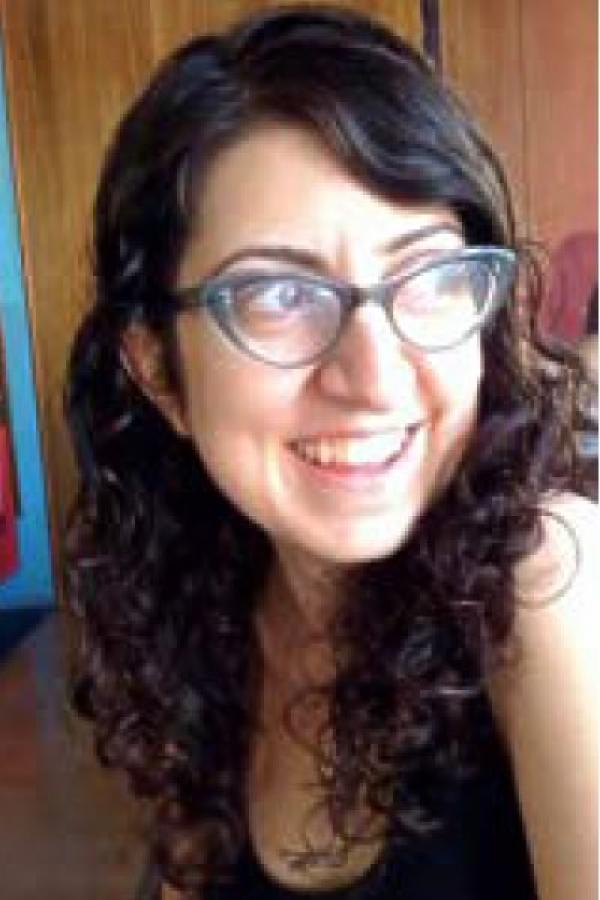Dena Afrasiabi

Photo by Rachel Lasseff
Bio
Dena Afrasiabi was born in Iran and raised in northern California. She earned an MFA in fiction from Rutgers-Newark University and a PhD in Middle Eastern Languages and Cultures from the University of Texas at Austin. She was a finalist for the Flannery O’Connor Award for Short Fiction in 2015 and her work has received fellowship support from the Millay Colony, the Helene Wurlitzer Foundation, the Marble House Project, and the Kimmel Harding Nelson Center for the Arts. Currently, she lives in Austin, Texas, where she works as an editor of Middle Eastern literature in translation.
It’s no secret that the path to becoming a writer requires that you spend an unknown number of hours, months, or years writing into the void, producing hundreds of pages that may never see the light of day. In a society that emphasizes product over process, such a pursuit can on some days seem like a dubious life choice. Like many women, like many women of color, I’ve spent much of this long apprenticeship doubting my own voice, which is perhaps why I’ve often been reluctant to share my work beyond a small, supportive circle and why, when I received that fortuitous call from the NEA, I immediately looked up the caller’s name on the literature award staff list online to make sure the call hadn’t been part of a particularly cruel identity theft scam.
The more I write, the more aware I become of the collaborative nature of writing. Over the years, the self-doubt has been eased by the support of different communities—the encouragement of teachers, the kind comments of fellow workshoppers and colleagues and anonymous readers of published work. But I can’t express enough gratitude for the freedom from doubt that the NEA’s vote of confidence has afforded me.
This fellowship will make it possible for me to take some time away from editing other people’s work and fully devote myself to finishing the novel I’ve been working on for the past few years. It will also make it possible to do research for this and future projects. Most of all, it means having the space to once again cultivate the fearlessness required for this vocation, to remember the real reasons that we write.
Excerpt from "Quiet Girls"
There were five of us on St. Bernadine Girls’ High School’s first wrestling team. We were the foreign girls, the quiet girls, girls too small for the world. Girls who smiled without teeth and walked without footsteps, wore shapeless skirts our mothers sewed from the fabric of second-hand curtains. Our fingers quivered if we raised our hands. Our knees knocked as we shuffled through the halls. Our voices rustled like candy bar wrappers and never caught in your ears. Coach was the first to see our secret, curled up in our bellies like a baby snake. He hand-picked us, plucked us from our hiding places. He helped us untangle the knots we had become.
It was 1983. We were sixteen. Grownups told us we looked younger. They liked to pat us on the head at dinner parties and tell us we should smile more. “But you’re so pretty when you smile.” We shrank from their touch like sea anemones around an uninvited finger.
Our parents had moved us to Houston from other countries before we could talk. Perhaps our silence paid homage to those mute and shaking children, moved in the night from places swallowed by the wordless parts of our minds. Perhaps we wanted a way to start over, to sew back the ruptures of our earlier years.
St. Bernadine’s School for Girls was located in the right part of town. Oak-lined streets and red brick houses made a hundred years ago. Shiny new cars the size of yachts filled generous driveways. Young women pushed strollers along immaculate sidewalks, waved at the older women crouched in front yards, installing flowers. Our parents raised us as if we too were plants. If they just picked the right patch of soil, it would seem we’d been there all along.
Before wrestling, we'd sought each other's eyes inside shared hiding places, learned to speak whole paragraphs with our eyelids. One blink: I see you. Two blinks: come stand by me. Three: I'm relieved you are here. We found sanctuary in the dimness of bathroom stalls and of windowless library basements, unlit cafeteria corners where we hid crustless sandwiches on our knees, where we chewed behind our cuticle-bitten hands. We lay puffy-eyed on cots inside the nurse’s office like drowning victims and pinched the flesh between our eyes, feigning migraines. We smelled like the artificial fruit of chewable vitamin tablets, like the sharp pink of toilet bowl cleaner, like the starch on nurses' uniforms. We smelled of our mother's anti-aging face creams and our father's spray-on aftershave. Of spices from the "ethnic" aisle. We veiled our faces under long bangs and blank stares. Even teachers couldn’t remember our names. Years of hiding had transposed us into the negative of a photograph: we struck you once and you forgot us.

